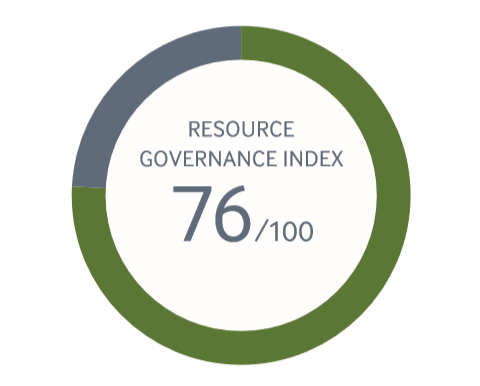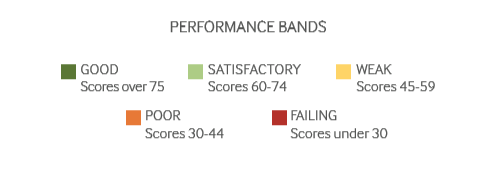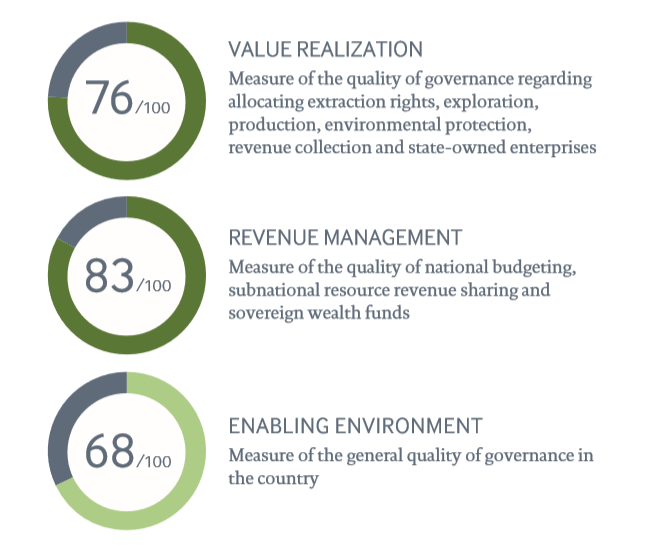
2021 Resource Governance Index: Colombia (Oil and Gas)
Español »
This briefing presents the results and recommendations from the 2021 Resource Governance Index for Colombia's oil and gas sector.
Recommendations:
Given the importance of oil and gas exploitation as a source of tax revenue and exports, NRGI makes the following recommendations to improve governance of the oil and gas industry:
This briefing presents the results and recommendations from the 2021 Resource Governance Index for Colombia's oil and gas sector.
With a score of 76 points out of 100, the Colombia’s oil and gas sector has placed in the “good” performance band of the 2021 Resource Governance Index (RGI). The score is five points higher than in the 2017 RGI, and all scores for the constituent parts of the index were good or in the upper range of “satisfactory.”
Key messages:
- Colombia’s oil and gas revenue management received the highest score, at 83 points, thanks to transparency in royalties administration. Nonetheless, the disclosure of information from the state-owned enterprise and information on environmental licenses require improvement.
- The greatest gains have been reported in governance of local impacts. This score increased from 36 points in the RGI 2017 to 79 in the new edition, driven by improvements in the regulations on environmental impact assessments and mitigation plans. Weaknesses remain in both the regulations and real-world compliance around land rehabilitation, project closure, compensation and resettlement.
- Important progress has been made in the governance of licensing, contributing to positive results in the recent licensing rounds.
- There have been no advances in the transparency of payments by extractive companies to the government or companies’ beneficial ownership, even though both are commitments under Colombia’s membership in the Extractive Industries Transparency Initiative (EITI).
Given the importance of oil and gas exploitation as a source of tax revenue and exports, NRGI makes the following recommendations to improve governance of the oil and gas industry:
- The Congress of the Republic of Colombia should pass legislation requiring disclosure of beneficial ownership information and payments made to the state by all mining companies. Both are requirements under the EITI standard to which Colombia is a party.
- The National Environmental Licensing Authority should facilitate the online disclosure of environmental impact studies and mitigation plans and make use of the capacity of the VITAL platform to allow online access to environmental impact assessments, mitigation plans, and others, to ensure effective disclosure of environmental licensing.
- Ecopetrol should disclose procedures and results for the sale of crude oil, and publish disaggregated information on social expenditures as part of its Community Development Program.
- The Ministry of the Treasury should publish the annual reports of the Savings and Stabilization Fund. Although the regulatory framework for the sovereign wealth fund does not stipulate this, publication of an annual report disclosing deposits and withdrawals, as well as a detailed description of investments and their yields, is a best practice.
- The Vice-Ministry of Energy should provide further information on Ecopetrol’s plans and strategies to adapt to the energy transition, particularly on future investments in exploration and development, as well as the company’s anticipated breakeven prices, considering the greater financial risk that comes with the future decline in oil demand.


